On April 22, four paddlers launched a 20-foot canoe in northern Minnesota’s Lake Itasca with an unfathomable goal: To paddle more than five miles per hour, 24 hours a day for nearly 18 days. That’s the pace they’d need to set a new speed record for paddling the Mississippi River on a 2,350-mile journey to the Gulf of Mexico.
KJ Millhone had done it before. In 1980, at age 22, KJ canoed the length of the Mississippi in 35 days with his friend Steve Eckelkamp, establishing a Guinness World Record. The record was trimmed to 23 days by legendary long-distance canoeists Verlen Kruger and Valerie Fons in 1984. Finally, Bob Bradford and Clark Eid completed an 18-day Mississippi speed run in 2003. KJ’s dreams of reclaiming the speed record with Eckelkamp were dashed when his best friend died in 2017. Then, his 20-year-old daughter, Casey, suggested they try it together.
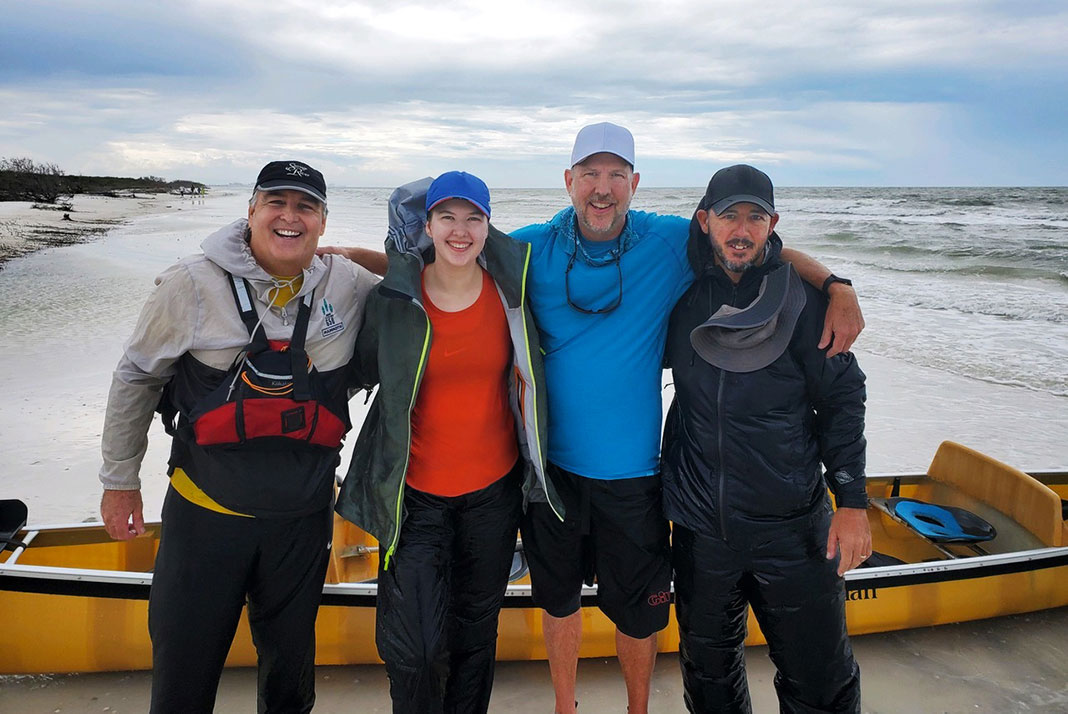
“The trip with Steve changed the trajectory of my life,” says KJ. “When Casey said she wanted to do it, I thought the best gift I could give her was the opportunity for this experience to broaden her world as it did mine.”
The Millhones recruited long-distance canoe racers Bobby Johnson, 42, and Rod Price, 60, to join their team. Departure was timed to reap the greatest benefit of high water. “You simply couldn’t do this on calm water,” notes KJ. Of course, a shoulder season expedition also meant tornados, lightning and temperatures ranging from sub-freezing to scorching. “I think we got more than a fair shake from Mother Nature,” KJ adds.
A big part of the MMZero expedition was to raise funds to support the Mississippi River Network, an environmental coalition. The tiny creek draining Lake Itasca becomes a broad, muscled river within 600 miles as Northwoods wilderness transitions into the bluffs of the Midwestern plains. Countless river towns attest to the Mississippi’s role in shaping the United States’ heartland.
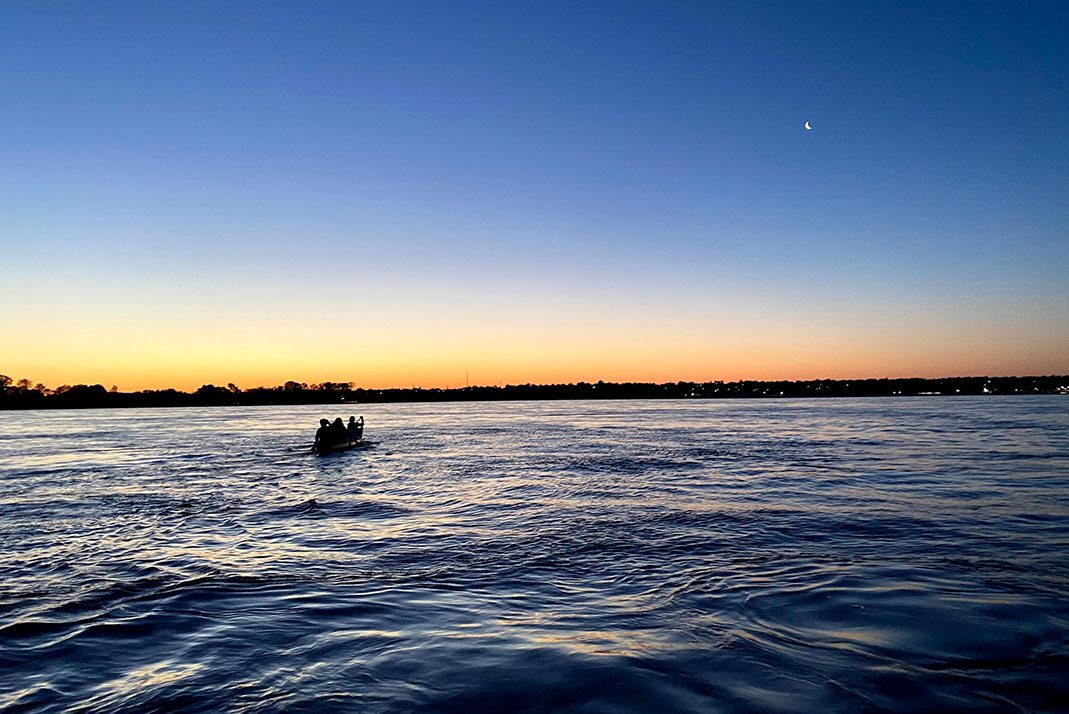
KJ imagined floating with Huck Finn and Tom Sawyer as the river wanders through Arkansas and Mississippi; he watched the millions of birds that use the waterway as a migration corridor pass overhead. From Baton Rouge to the Mississippi Delta, the paddlers encountered ocean-going freighters, tugboats and barges plying the river’s powerful muddy water. “You experience two centuries of history,” says KJ. “It’s timeless, priceless and preciously American.”
The team attempted to enjoy the scenery while maintaining a breakneck pace. To ensure the team could obtain the record, they paddled their Wenonah Minnesota IV day and night in nine-hour shifts, taking it in turns to sleep in the canoe for three hours at a time.
Price recalls sheer exhaustion, sleep deprivation, hallucinations, hypothermia and extreme weather. “When the conditions cause you to lose time,” he says, “you realize there’s no wiggle room at all. But on the other hand, one good night can completely turn things around.”
“Riding the Mississippi River is like Mount Everest for paddlers.”
“Riding the Mississippi River is like Mount Everest for paddlers,” Price says. “More than 4,000 people have climbed Everest, but I can guarantee far fewer than 4,000 people have paddled the whole Mississippi. It’s a phenomenal task.”
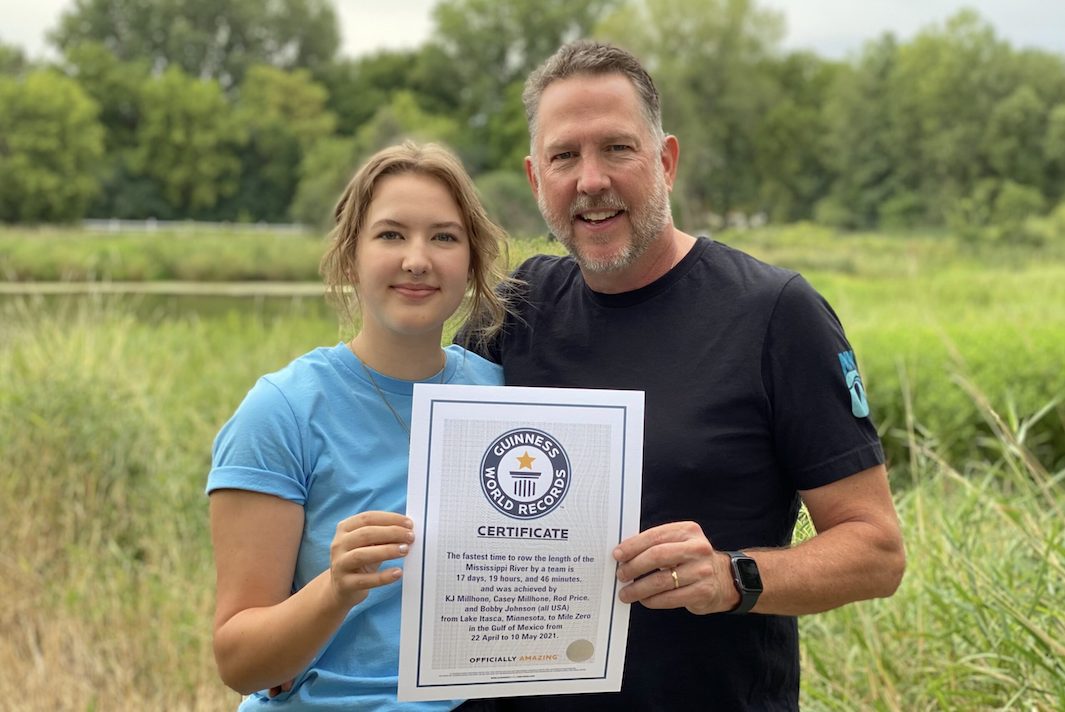
Casey says the team’s 24-hour paddling schedule put the river in a new perspective. “Your awareness of sounds and the environment is so different at night,” she says. “Although that’s scary in some ways, it was also exciting to be on the water and experience the river at all times of day.”
Meanwhile, KJ reflected how this expedition differed from his previous one. “We were just two 20-something guys paddling down the river,” he says. “But now, with all the logistics we needed to keep in mind, it felt a lot closer to trying to make the first trip to the moon.”The journey was also an opportunity for him to witness the changes four decades have brought to the Mississippi River. “It seemed healthier, more vibrant and wilder than it did in 1980,” KJ notes.
This article was first published in Paddling Magazine Issue 64. Subscribe to Paddling Magazine’s print and digital editions here, or download the Paddling Magazine app and browse the digital archives here.
To set a new world record, the team paddled day and night in nine-hour shifts, taking turns to sleep in the canoe for three hours at a time. | Feature photo courtesy of: MMZero




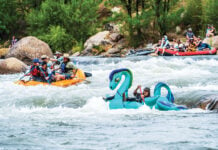

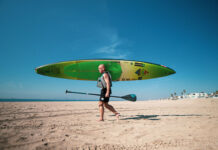
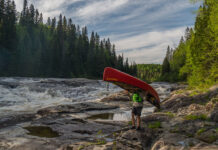


I’ve paddled the Mississippi a couple times, once in the fall. I remember chatting with wild ricers in northern Minnesota, gliding under a tree holding four bald eagles, sipping tea with fishermen when the wind was too fierce for paddling or fishing, and staying with a score of people, from a waitress in the Twin Cities to cotton farmers in Mississippi. Racing the Mississippi feels like a waste of a fine river.